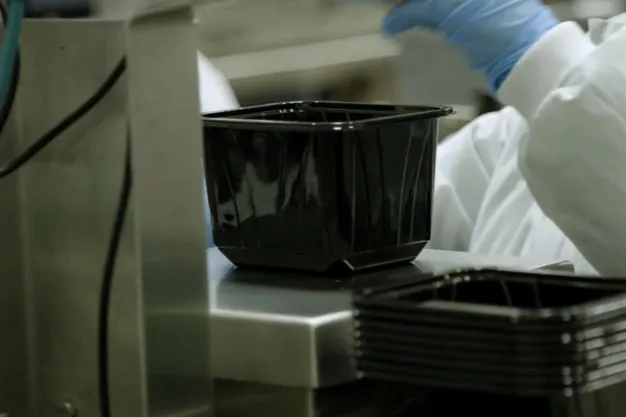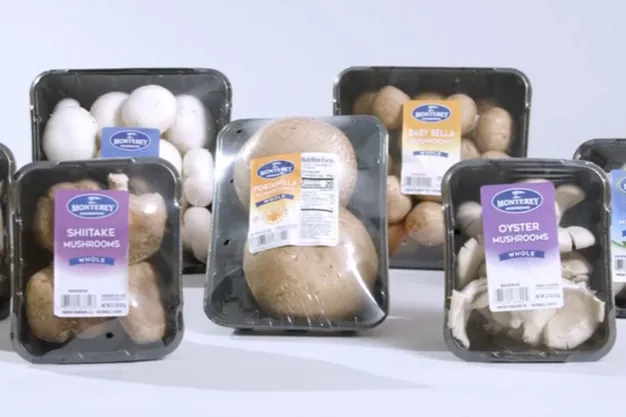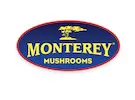Monterey Mushrooms is making a change to enhance the recyclability of its mushroom packaging by incorporating near-infrared (NIR) sortable material in its recycled Polyethylene Terephthalate (rPET) thermoformed tills.
The company's rPET tills are produced using 100 percent post-consumer recycled materials sourced entirely from North America. This means the material used in the tills has already had a prior life, thus reducing plastic waste in landfills and contributing to a circular economy. The use of NIR sortable colorant ensures that the packaging can be properly sorted and recycled into new products.
 The company's rPET tills are produced using 100 percent post-consumer recycled materials sourced entirely from North America.
The company's rPET tills are produced using 100 percent post-consumer recycled materials sourced entirely from North America.
PET and PETE are abbreviations for the plastic: Polyethylene Terephthalate. It is the most commonly used plastic among consumers and has the recycling symbol 1. Comparing PET/PETE with rPET, the difference is the r, which stands for recycled. The r denotes that this material is a recycled version of PET/PETE plastic.
By using rPET, the mushroom industry can give multiple lives to mixed-color recycled PET materials. rPET with NIR sortable colorant can potentially provide long-term cost advantages compared to other colors, including clear rPET.
"In the 1980s, we introduced pre-packaged mushrooms," said Bruce Knobeloch, VP of product development and marketing. "Since then, the mushroom industry has been repurposing colored rPET, such as opaque blue, opaque green and black rPET plastics to give them a new life. We believe using clear rPET is wasteful and a regressive step for our industry."
 By using rPET, the mushroom industry can give multiple lives to mixed-color recycled PET materials.
By using rPET, the mushroom industry can give multiple lives to mixed-color recycled PET materials.
The company considers its tills with the NIR sortable colorant as a black alternative color. The hue will vary between blue, green, purple, black, etc, as the recycled base material used to manufacture the tills will change.
The recycling rate in the United States is 29 percent and in North America as a whole is 37.8 percent. Recycling centers play a vital role in transforming plastic waste into reusable materials. However, the sorting/processing of plastics can be challenging due to variations in composition and color.
There's a lot of confusion among consumers about what can be recycled. All rPET materials can be recycled but the nation does not have the infrastructure to do so.
Plastic waste in the U.S. has increased tenfold since the 1970s, leading to overflowing landfills and ocean pollution, while recycling rates have remained low.
Monterey Mushrooms wants policymakers to consider what actions can be taken to facilitate a shift towards a more circular economy, including innovation and investment in manufacturing and recycling capabilities?
"By choosing black alternative rPET with NIR sortable colorant, we're packaging a greener future," said Knobeloch.
 For more information:
For more information:
Lindsey Occhipinti
Monterey Mushrooms, Inc.
Tel: +1 (831) 763-5355
locchipinti@montmush.com
www.montereymushrooms.com
